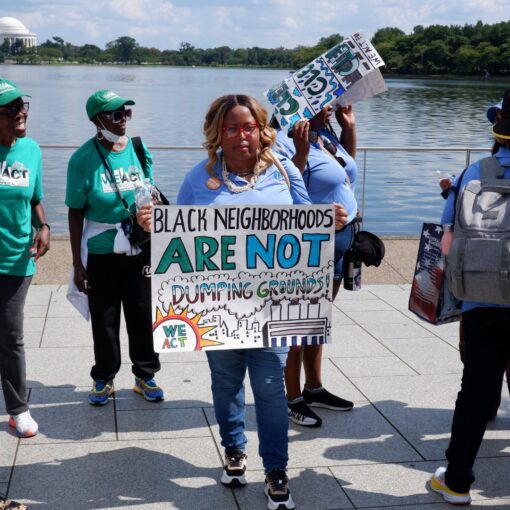Reducing pollution from the transportation sector is one of the most important steps to sustaining a livable climate. The transportation sector is the leading source of greenhouse gas emissions in both the United States and New York. Cars, trucks and buses also emit other harmful air pollutants that more immediately contribute to public health threats such as asthma, heart disease, and premature death. These negative impacts are concentrated in low-income communities and communities of color, which are often located near highways, transportation depots, and freight hubs. In addition to being disproportionately exposed to air pollution and affected by related health problems, these communities often have inadequate access to public transportation options, which limits access to health care, services, and jobs.
In response to these climate and equity challenges, the Transportation and Climate Initiative (TCI) seeks to reduce greenhouse emissions from the transportation sector while investing in communities that are overburdened by transportation pollution and underserved by transit. The initiative seeks to reduce greenhouse through a cap-and-invest model that taxes fuel providers and reinvests the proceeds in clean transportation. Four jurisdictions (Rhode Island, Massachusetts, Connecticut and the District of Columbia) have signed a Memorandum of Understanding committing to the TCI program. Nine other states, including New York, are considering joining the program.
The TCI includes several elements that aim to address disparities in exposure to transportation pollution and access to transportation, including a requirement that participating jurisdictions invest at least 35% of the proceeds “to ensure that overburdened and underserved communities benefit equitably from clean transportation projects and programs.”
In a report published today, Columbia Law School’s Sabin Center for Climate Change Law examines how New York law could further advance equity if New York joins TCI. The report focuses on two recently enacted statutes, and another that has been proposed in the New York Legislature:
- The Climate Leadership and Community Protection Act (CLCPA), enacted July 2019, sets ambitious mandates for New York to reduce greenhouse gases and scale up renewable energy capacity. The CLCPA also contains a number of provisions designed to advance equity, including a community air monitoring program and a requirement that “disadvantaged communities shall receive no less than thirty-five percent of the overall benefits of spending on clean energy and energy efficiency programs, projects or investments.”
- Article 48 of the Environmental Conservation Law (signed December 2019) assures that all people have a right to fair treatment and meaningful involvement in the development and implementation of environmental policies. Article 48 may provide opportunities to ensure that environmental justice communities have a seat at the table when TCI is implemented, and safeguards that result in more equitable implementation.
- If enacted, the proposed Climate and Community Investment Act would create additional opportunities to funnel investments towards communities that have been overburdened by transportation pollution.
The report was written by Hillary Aidun, Ama Francis and Michael Gerrard of the Sabin Center. Its preparation was supported by WE ACT for Environmental Justice. The report represents the views of the Sabin Center, and not necessarily those of WE ACT.
Read the report here.




